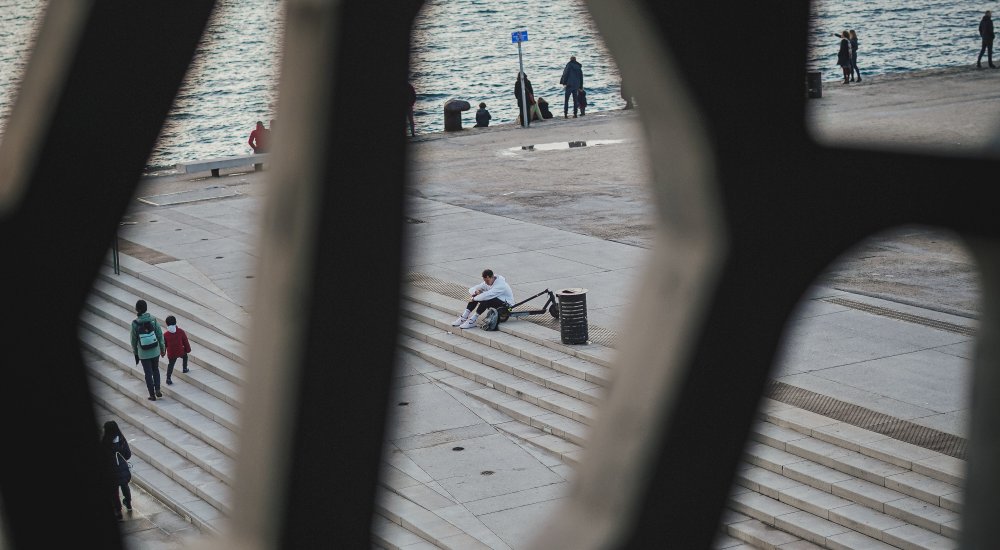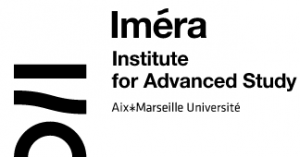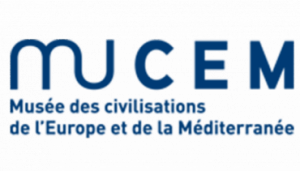IMÉRA Arts & Sciences Programme┋MuCEM/IMERA Residency
'Undisciplined Knowledge'

The Mucem/IMERA residency is open to artists, researchers in the humanities and social sciences, and professionals in museology and heritage.
The Museum of European and Mediterranean Civilizations (Mucem) is a national museum located in Marseille. Europe and the Mediterranean are considered from the perspective of the humanities, social sciences and art. The focus is on circulation and exchange on a Euro-Mediterranean scale, on the mutations of our societies and on sensitive issues, as well as on contemporary re-readings of ordinary or informal cultures and practices (technical cultures, know-how, representations and imaginaries, productions and expressions that are little or not institutionalized).
The Mucem/IMERA residency project will have to be applied concretely at the Mucem, in articulation with IMERA's programs, and with a particular attention to the Mediterranean dimension. Among the expected lines of research, we can mention in a non-exhaustive way:
- Conducting research based on collections and documentary funds of the Musem, and in the case of artists as a starting point for artistic research;
- Rethinking artists' interventions in museums of civilization;
- Rethinking the link between artistic works and anthropological objects;
The candidate is expected to develop his/her research in co-construction with the scientific team of the Mucem. This collective dimension must be made explicit in the project, which will show the methods and modes of work envisaged by this immersion collaboration.
Among the possible approaches:
1. Explorations of museographic spaces
The project may propose a specific reading of the following spaces, as well as related museographic interventions (mediation devices, performances or lectures, publications...)
- The Galerie de la Méditerranée is the semi-permanent exhibition space of the Mucem. From the end of 2023, the new tour will be devoted to the heritage inventions of the Mediterranean, from the 18th to the 21st century, through the multiplicity of points of view that have constructed these representations: naturalist, artistic, ethnographic, etc. Attention will be paid to the historical contexts and to the social, political, economic, and environmental issues that influence these constructions, with an emphasis on the contemporary dimension of these issues and on the links between Europe and the Mediterranean.
- The "Model Apartment" of the Mucem's Conservation and Resource Center is a storeroom accessible to the public that presents a sample of the collections. This allows us to understand the typological diversity of the collections, as well as their principles of constitution, intellectual classification and material conservation. These collections constitute a documentary resource open to the rereading of the human and social sciences, as well as a breeding ground for poetic forms and emergences.
2. Study, enrichment and re-reading of the collections
Projects may be based on the study and review of the collections and documentary holdings, in consultation with the scientific team:
- The collections and resources kept in the reserves are rich in a million diverse items: 250,000 objects, 350,000 photographs, 100,000 posters and prints, 100,000 postcards, 1 linear kilometer of archives (sound, audio-visual, paper...). They include a French and European ethnographic collection documenting popular customs, practices, cultures and arts (19th-20th centuries), extended to urban anthropology of the 20th and 21st centuries, and then to a Mediterranean scale since the 2000s. These collections are organized around thematic poles (performing arts; religions and beliefs; public life; sports and health; crafts, commerce, and industry; mobility, crossbreeding, and communication; domestic life; bodies, appearances, and sexuality; agriculture and food; contemporary art; and the history of museums).
- Two multi-year research programs aim to analyze and enrich the collections: one devoted to the ethnography of creation in exile, and the other to popular appropriations of ancient legacies.
3. Museology and museography
The research projects will allow for the development of critical reflection and museum practices, particularly in the following fields:
- Inclusive practices
- Collection of objects and narratives, patrimonialization of the contemporary
- Notion of "popular culture" to be revisited
- Articulation between art, history and ethnography
- Writing in exhibitions and collections: how to transcribe documentary data (alternative cartography, artistic expressions of digital, statistical or chronological data, exhibition of field notebooks...)
- Performative devices in museums
- Development of itinerant and off-site projects
Contact: Before submitting your application, please contact Aude Fanlo, Head of the Research and Teaching department at Mucem, aude.fanlo@mucem.org and Constance Moréteau, Scientific Coordinator at IMERA, constance.moreteau@univ-amu.fr
Exchanges on the current projects of the Mucem are required in order to allow the most fertile interactions possible with the institution and its intellectual community.
Schedule
- Application deadline: October 17 2022 1 pm (french time)
- Duration of the residency: 5 months
- Suggested residency period: from February 12 2024 to July 5 2024 (second semester)
Eligibility
To be eligible, applicants must meet the following criteria:
For scientists:
- Not to have lived in France more than 12 months during the three years preceding this call for applications.
- Hold a Doctorate or PhD.
- Possess an employment contract (permanent or not) in a foreign university or research institution during the residency.
For artists:
- Not to have lived in France more than 12 months during the three years preceding this call for applications.
- No pre-requirements of diploma or employment contract.
Remuneration and accommodation
Scientists remuneration:
Junior: €2,000 monthly allowance
Senior: €3,000 monthly allowance
Are considered juniors, scientists who, at the closing date of the call for applications, have full-time postdoctoral research experience ranging between 2 to 9 years.
Are considered seniors, scientists with minimum 10 years’ experience in full-time research after obtaining the PhD as at the closing date of the call for applications, and university professors.
Residents will also benefit from paid travel expenses and free accommodation on IMERA premises.
Artists remuneration:
Artists will receive €2,000 monthly allowance or salary (depending on their candidate status).
Residents will also benefit from paid travel expenses and free accommodation on IMERA premises.
Selection criteria
Application assessment criteria include, but are not limited to:
- Candidate's history.
- The scientific or artistic project; on the basis of its originality and rigor, risk-taking and the potential for experimentation, the place given to collaboration, making the most of opportunities within the intellectual community of IMERA (residents and scientific team) and the Aix-Marseille University, while actively contributing to its animation.
- The interdisciplinary approach; on the basis of a proven practice and a project where it is practicable.
- Interaction perspective with Mucem and Aix-Marseille labs.
Application
Online applications (candidatures-imera.univ-amu.fr) must include the following supporting documents:
- A duly completed application form (mandatory fields);
- All the following files (to download):
- A curriculum vitae including a list of publications for scientists, and / or former works for artists and heritage and museum professionals.
- A presentation of the project (maximum 5 pages) followed by a selective bibliography (compulsory for scientists) or a list of artistic and scientific references (compulsory for artists)


